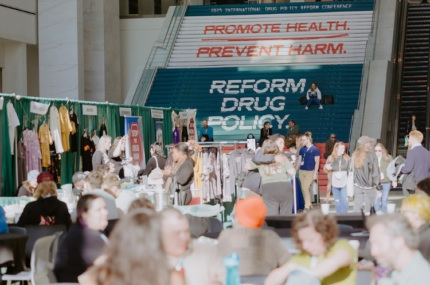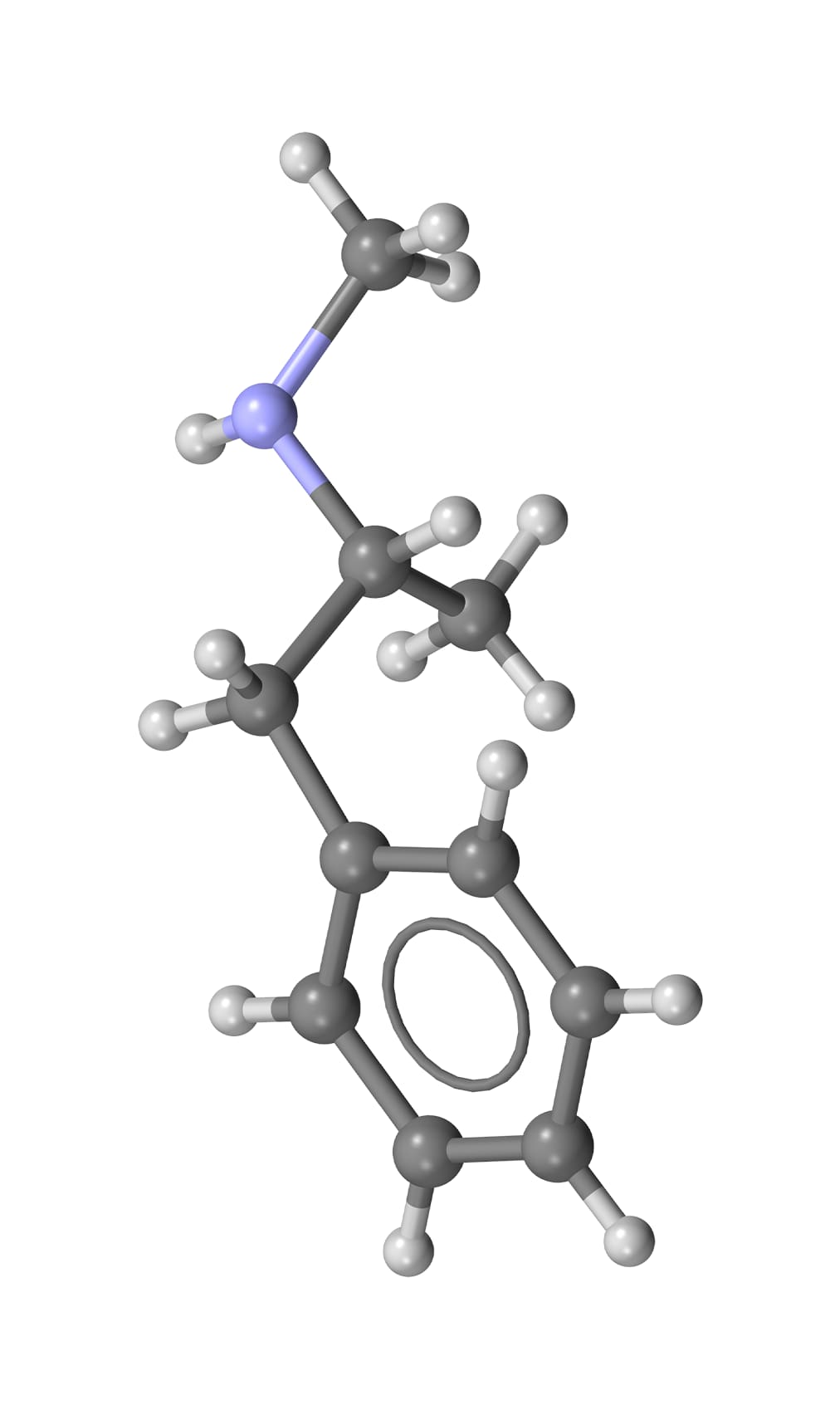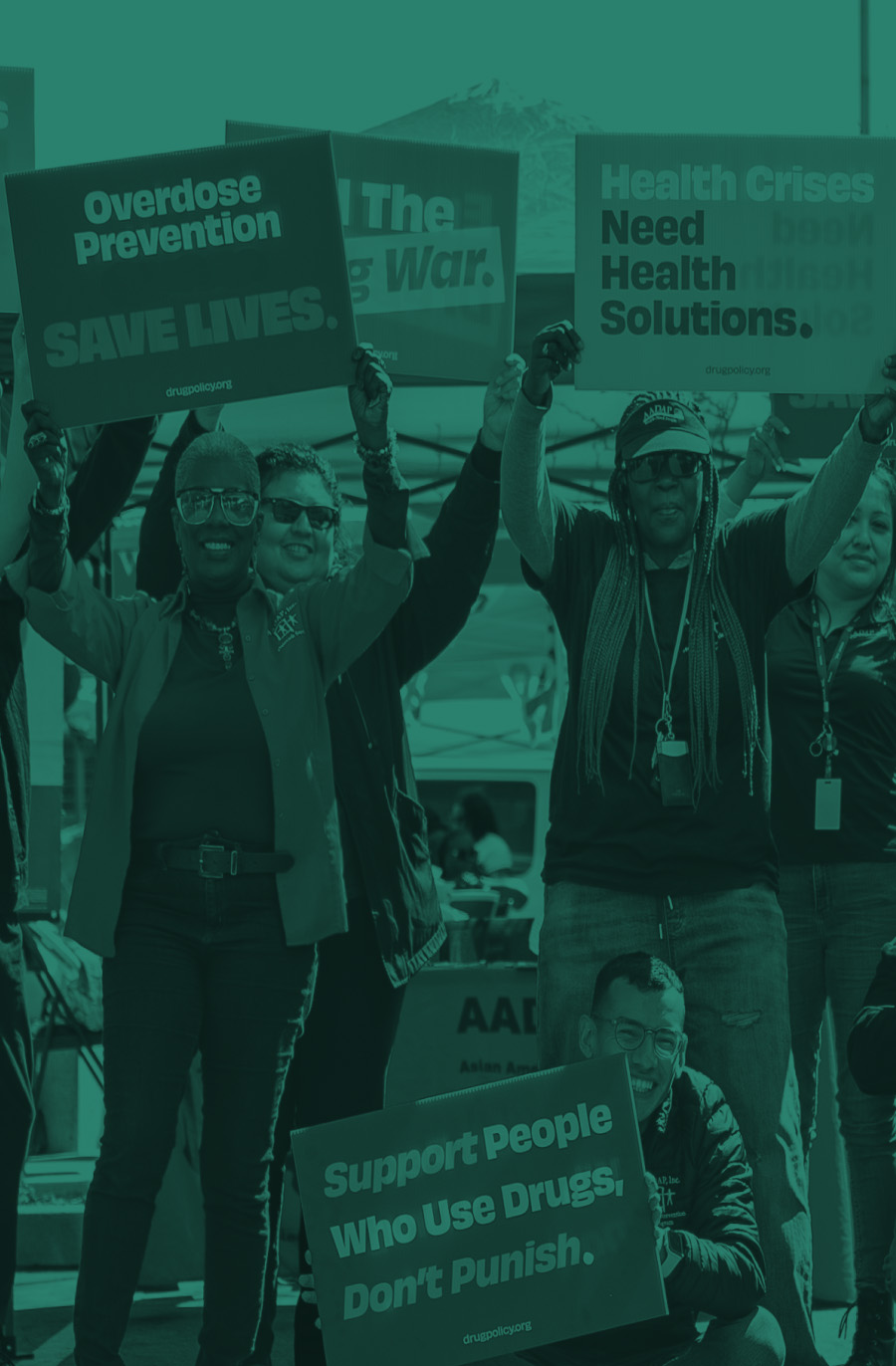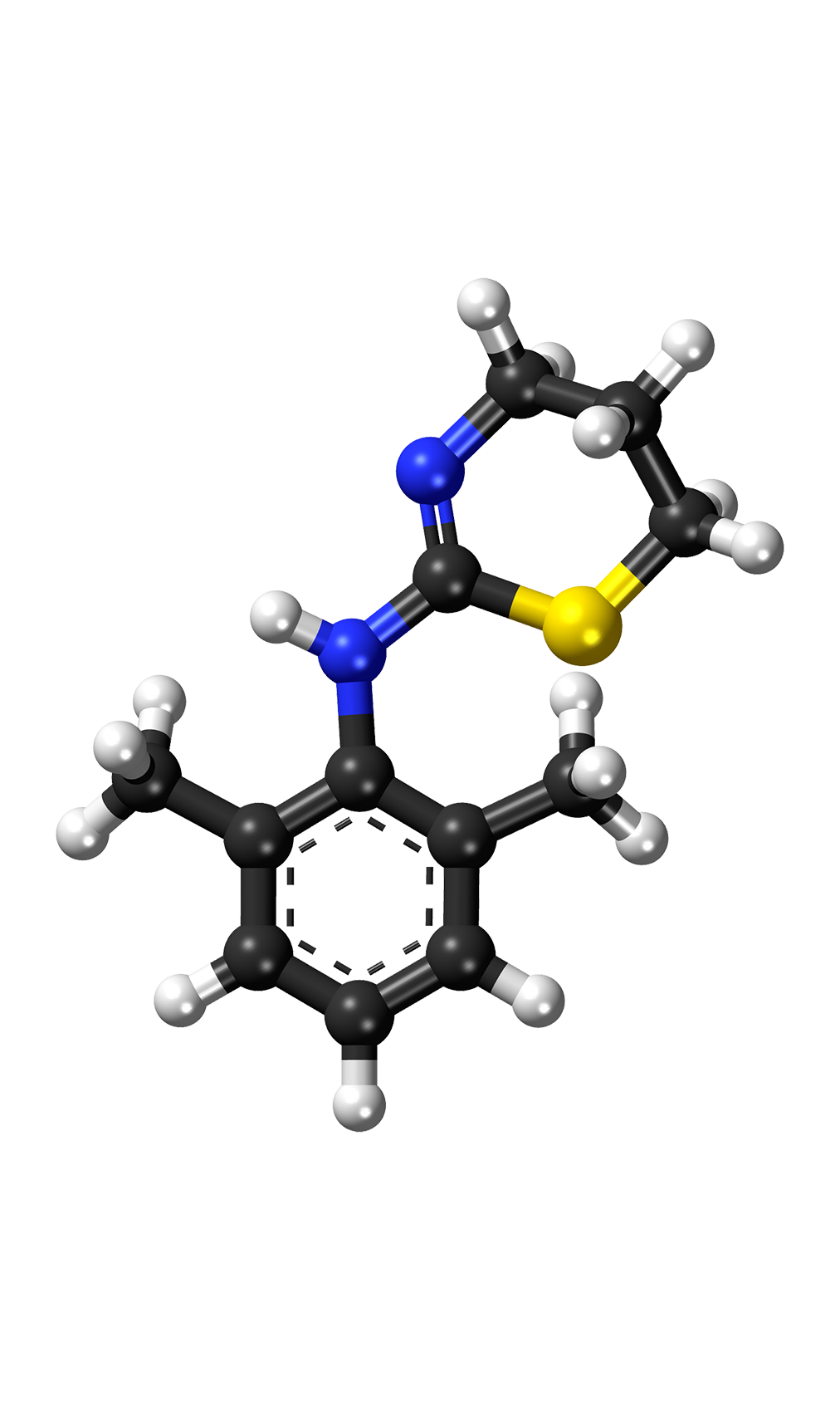Support a Health Approach to Drugs.
Most Americans support a health approach to drugs — focusing on reducing the risk of drug use and overdose, and prioritizing health services that help people recover, stay safe, and thrive.
 Action
Action 




